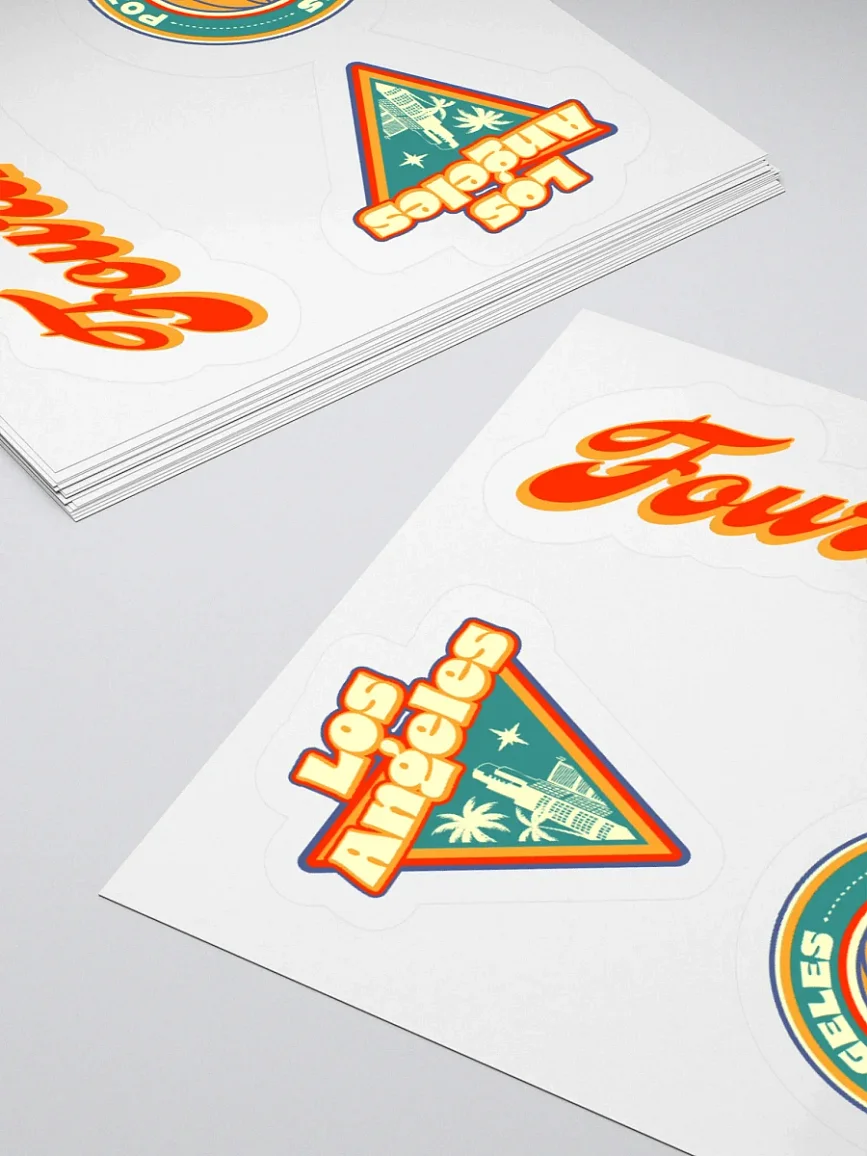What Is Shoppable Content? Get Started and Make Money Online

Shoppable content has emerged as a powerful tool for businesses and creators to monetize their online presence, seamlessly integrating the shopping experience within engaging digital media.
Over the last decade, shopping has transformed significantly, becoming far more enjoyable and interactive than traditional department store experiences. Social commerce, with features like shoppable content, allows brands to embed purchasable products directly into social media posts, videos, and articles, turning passive viewers into active consumers with a single click.
This trend is only expected to grow, with ecommerce projected to comprise nearly a quarter of total global retail sales by 2026. If you're not yet creating shoppable content on social media platforms, it's time to start.
In this article, we’ll delve into the world of shoppable content and explore how it's reshaping online shopping experiences for creators and customers looking to sell and buy products.
What Is Shoppable Content?
Shoppable content refers to any type of digital content that enables consumers to browse and purchase products without leaving the platform or website they are currently on.
This innovative approach to ecommerce blurs the lines between content and commerce, providing a frictionless shopping experience for consumers while unlocking new revenue streams for businesses and creators alike.
From Instagram posts featuring clickable product tags to YouTube videos with embedded purchase links, shoppable content transforms passive engagement into actionable transactions, driving sales and revenue in the process.
Benefits of Shoppable Content
Integrating shoppable content into a digital marketing strategy can yield numerous benefits for businesses and creators alike.
Increased engagement
Shoppable content captivates audiences by seamlessly blending entertainment with commerce, resulting in higher levels of engagement and interaction. By providing consumers with the opportunity to shop directly from the content they enjoy, businesses can deepen customer engagement and foster stronger connections with their audience.
Enhanced user experience
Shoppable content streamlines the path to purchase, providing consumers with a seamless and intuitive shopping experience. By eliminating the need for multiple steps and redirects, businesses can enhance customer experience and reduce friction in the buying process, leading to higher satisfaction and retention rates.
Higher conversion rates
Shoppable content has been shown to drive higher conversion rates compared to traditional marketing channels. By presenting products in context and facilitating immediate purchase decisions, businesses can capitalize on consumer intent and convert engagement into sales more effectively.
Improved sales performance
Ultimately, shoppable content delivers tangible results in the form of improved sales performance. By leveraging engaging content to showcase products and facilitate transactions, businesses can drive revenue growth and unlock new opportunities for monetization across various digital platforms.
Types of Shoppable Content
There are several different types of shoppable content that businesses and creators can leverage to drive online sales and engagement.
Shoppable Social Media Posts
Shoppable social media posts have revolutionized the way businesses interact with consumers online, offering seamless shopping experiences directly within platforms like Instagram, Pinterest, and TikTok Shop.
With Instagram Shop, creators and businesses can now tag products and links in their posts and stories, leading users to product details pages where they can make purchases with just a click of the app.
With Pinterest, the platform uses shoppable pins that allow users to discover and shop for products based on their interests, while TikTok Shop allows users to seamlessly discover and purchase products directly within the app's interface, often through engaging short-form video content created by influencers for brands, streamlining the path from inspiration to purchase.
These features not only enhance the shopping experience by removing barriers to purchase but also increase engagement rates, drive sales, and provide valuable data and insights on user behavior and preferences, making them essential tools for businesses looking to succeed in the digital marketplace.

Shoppable Ads
Ever notice a random ad pop up when you're scrolling through your stories? These targeted advertisements are strategically placed based on your browsing habits and preferences, leveraging algorithms to personalize your social media experience and present products or services that align with your interests.
Shoppable ads represent an innovative approach to advertising, seamlessly integrating product discovery and purchase within the ad experience. By incorporating interactive elements like product carousels or clickable buttons, users can engage with the ad content and explore different products without leaving the platform.
Whether it's showcasing a curated selection of products or highlighting a specific item, shoppable ads leverage interactivity to drive engagement and conversions, ultimately helping businesses reach their sales objectives while providing users with a frictionless shopping journey.

Shoppable Video
Shoppable video content integrates product links or interactive hotspots into video content, allowing viewers to click on products of interest and make purchases without leaving the video player.
For instance, a fashion influencer might create a lookbook video featuring various outfits, with clickable links to purchase each item directly from the video.
Similarly, a tech reviewer could demonstrate the features of a new gadget, with interactive hotspots allowing viewers to learn more and buy the product with a simple click.
Shoppable videos not only drive sales for brands but also empower creators and influencers to monetize their content more effectively, leveraging their influence to drive conversions in an organic and engaging manner.

Shoppable Articles
Shoppable articles have become a popular format for bloggers and online publications to monetize their content while offering readers a convenient shopping experience.
By embedding product links or affiliate links within editorial content, these articles seamlessly integrate product recommendations and purchasing opportunities into the reading experience.
For instance, a beauty blogger might write a tutorial on achieving a certain makeup look and include links to the products used in the tutorial, allowing readers to purchase them directly.
Similarly, a travel blog could feature an article about a destination and include links to book flights, accommodations, and recommended tours or gear.
Shoppable articles not only provide value to readers by facilitating easy access to products relevant to the content but also offer bloggers and publications an additional revenue stream through affiliate marketing partnerships.

4 Tips for Creating Shoppable Content
Creating effective shoppable content requires careful planning and execution. Here are some tips and strategies to help businesses and creators maximize the impact of their shoppable content:
Show Products in Action
Creating shoppable content that demonstrates products in action involves showcasing them in real-life situations to help consumers visualize themselves using the product.
By providing context and demonstrating the product's functionality, usability, and benefits in practical scenarios, creators can effectively communicate its value to potential shoppers.
For example, a fitness brand could create shoppable content featuring individuals using their workout equipment in a home gym setting, demonstrating various exercises and highlighting the equipment's versatility and effectiveness.
Similarly, a fashion retailer could produce shoppable content showcasing models wearing their clothing in everyday situations, such as going for a coffee or attending a social event, allowing viewers to envision themselves wearing the outfits in similar contexts.
Leverage UGC
Incorporate user-generated content (UGC) into shoppable content to build social proof and authenticity, increasing consumer trust and confidence in the products.
By showcasing real-life experiences and testimonials from satisfied customers, these videos not only humanizes your brand but also provides valuable insights into product performance and usability, aiding shoppers in making informed purchase decisions.
Moreover, leveraging UGC in shoppable content enhances consumer confidence, driving conversion rates and fostering long-term brand loyalty.
Provide Descriptions
Detailed product descriptions and specifications play a pivotal role in empowering consumers to make well-informed purchase decisions.
Provide comprehensive information about your product's features, benefits, materials, sizes, and usage instructions, equipping shoppers with the knowledge they need to assess whether a product meets their specific needs and preferences.
For instance, an online clothing retailer could include details about fabric composition, sizing charts, and care instructions to help customers confidently select the right size and understand how to care for their purchase.
Similarly, an electronics company might offer technical specifications, compatibility information, and warranty details to assist consumers in choosing the right device for their requirements. These descriptions not only enhance the shopping experience but also minimize the likelihood of post-purchase dissatisfaction, building trust between the brand and its customers.
Clear call-to-actions
Clear and compelling call-to-action (CTA) buttons or prompts serve as the guiding force within shoppable content, urging users to seamlessly transition from browsing to purchasing.
By utilizing language that is direct, enticing, and action-oriented, brands can effectively prompt users to take the desired action, whether it's adding items to their cart, exploring more products, or completing the checkout process.
For example, a CTA such as "Shop Now" or "Add to Cart" positioned prominently within a social media post or website interface can provide a clear path for users to engage with the product and initiate a transaction.
Additionally, incorporating urgency-inducing phrases like "Limited Time Offer" or "Act Fast" can further motivate users to act swiftly, capitalizing on the fear of missing out (FOMO) and driving conversion rates.
Unlock the Power of Shoppable Content with Fourthwall
As creators and brands look to capitalize on the potential of shoppable content, platforms like Fourthwall are empowering them to monetize their content seamlessly.
Fourthwall enables creators and businesses to easily integrate shoppable features into their social media content, including platforms like TikTok, YouTube, and Twitch.
By leveraging Fourthwall's platform, businesses can create and launch an ecommerce store to source and sell products directly from their shoppable content, unlocking new revenue streams and driving online sales.
Explore Fourthwall today and unlock the power of shoppable content to make money online!
















